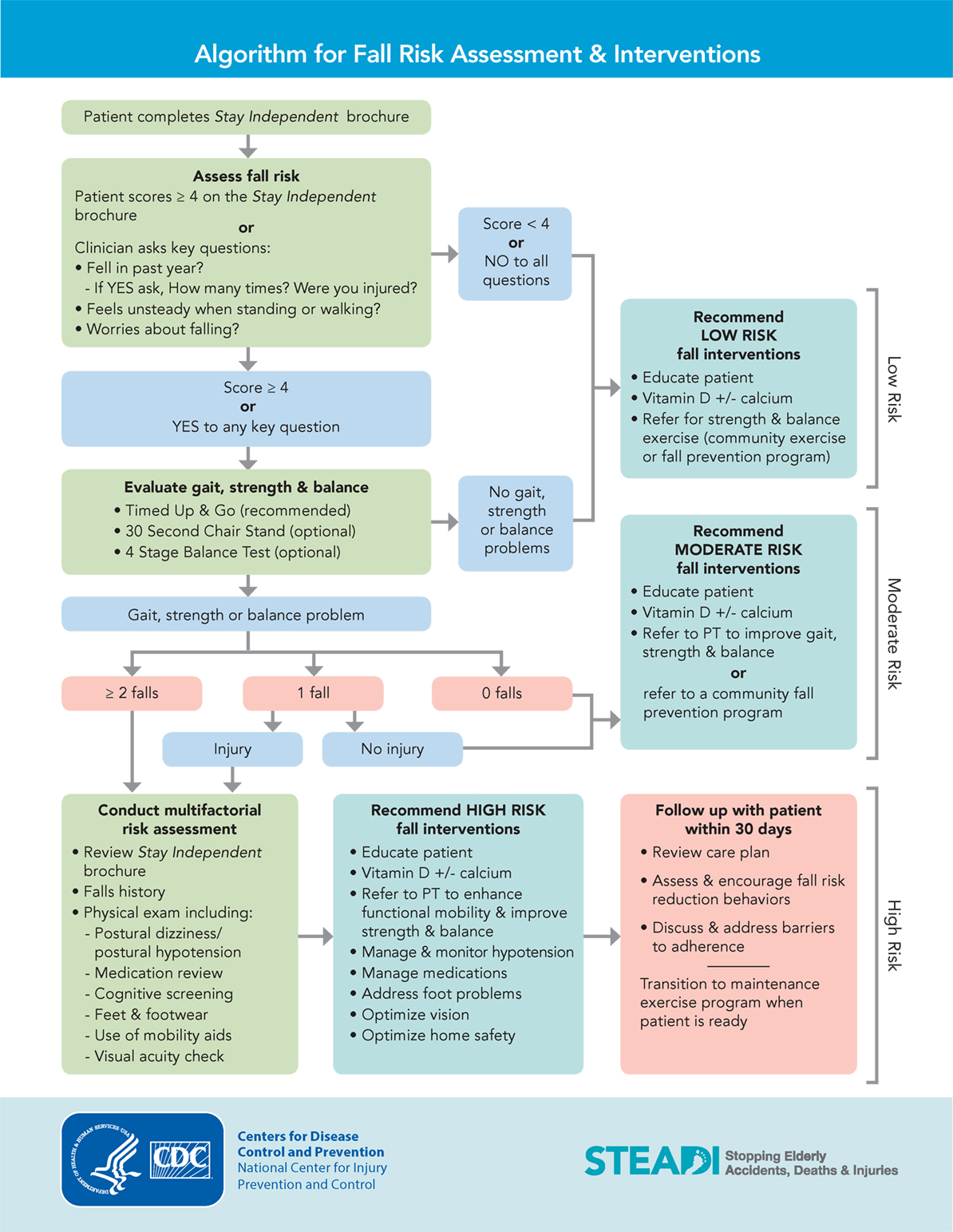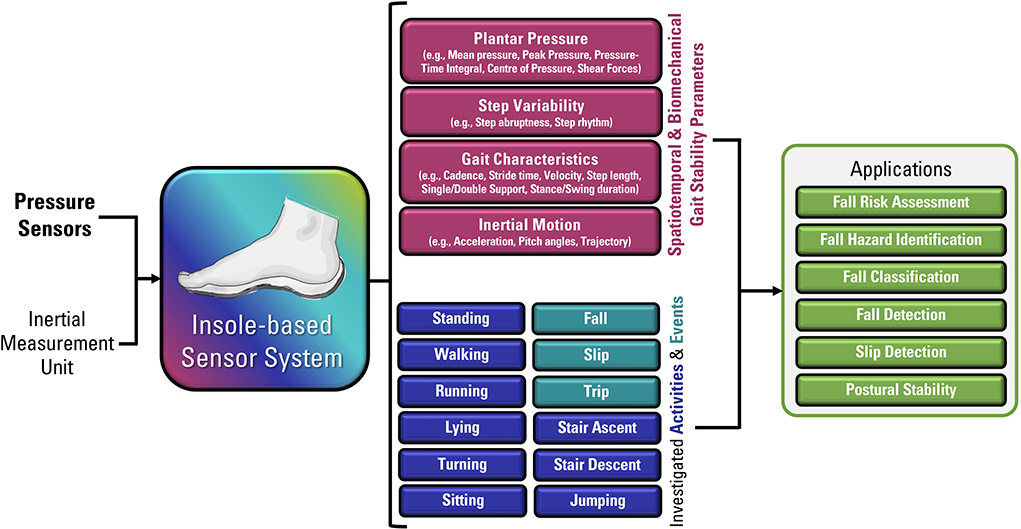The Single Strategy To Use For Dementia Fall Risk
The Single Strategy To Use For Dementia Fall Risk
Blog Article
The Facts About Dementia Fall Risk Revealed
Table of Contents5 Easy Facts About Dementia Fall Risk ExplainedThe Ultimate Guide To Dementia Fall RiskThe 4-Minute Rule for Dementia Fall RiskWhat Does Dementia Fall Risk Do?Dementia Fall Risk Things To Know Before You Buy
The FRAT has three sections: fall danger standing, risk aspect list, and activity plan. An Autumn Threat Condition consists of data concerning background of recent falls, medications, psychological and cognitive status of the client - Dementia Fall Risk.If the person scores on a threat variable, the matching number of points are counted to the individual's autumn threat score in package to the far ideal. If an individual's autumn threat score amounts to 5 or higher, the individual is at high risk for falls. If the person scores only four factors or lower, they are still at some threat of falling, and the registered nurse should utilize their finest scientific analysis to handle all autumn risk elements as part of an all natural treatment strategy.
These typical approaches, in general, help develop a risk-free setting that lowers accidental falls and delineates core preventative procedures for all clients. Indications are vital for people at danger for drops.
The 45-Second Trick For Dementia Fall Risk
For instance, wristbands must consist of the client's last and given name, date of birth, and NHS number in the UK. Information need to be printed/written in black against a white history. Only red color should be utilized to signify unique individual status. These referrals are consistent with current growths in patient recognition (Sevdalis et al., 2009).
Products that are as well much may require the person to get to out or ambulate needlessly and can potentially be a threat or add to falls. Assists stop the client from heading out of bed with no help. Registered nurses reply to fallers' telephone call lights a lot more promptly than they do to lights initiated by non-fallers.
Visual problems can substantially cause falls. Hip pads, when used correctly, might reduce a hip crack when fall occurs. Maintaining the beds closer to the floor minimizes the risk of drops and major injury. Placing the mattress on the flooring considerably minimizes loss risk in some healthcare setups. Low beds are designed to decrease the distance a patient drops after relocating out of bed.
An Unbiased View of Dementia Fall Risk
People that are tall and with weak leg muscles that attempt to remain on the bed from a standing position are likely to drop onto the bed because it's also low for them to lower themselves safely. Additionally, if a high person attempts to rise from a low bed without aid, the patient is most likely to drop back down onto the bed or miss the bed and drop onto the flooring.
They're designed to promote timely rescue, not to stop drops from bed. Audible alarms can additionally advise the individual not to stand up alone. The use of alarms can likewise be an alternative to physical restraints. In addition to bed alarm systems, enhanced guidance for high-risk clients additionally might help protect against falls.

Clients with an evasion gait boost loss opportunities try this out significantly. To reduce loss risk, footwear ought to be with a little to no heel, thin soles with slip-resistant walk, and sustain the ankle joints. Suggest individual to use nonskid socks to protect against the feet from sliding upon standing. Motivate individuals to use proper, well-fitting shoesnot nonskid socks for motion.
The Basic Principles Of Dementia Fall Risk
In a research study, homes with adequate lights report fewer drops (Ramulu et al., redirected here 2021). Improvement in lights at home may reduce autumn prices in older adults.

Caretakers work for ensuring a safe and secure, protected, and safe setting. Researches showed really low-certainty proof that sitters decrease autumn risk in intense care hospitals and only moderate-certainty that options like video tracking can minimize sitter use without raising loss threat, recommending that sitters are not as useful as initially thought (Greely et al., 2020).
Dementia Fall Risk for Beginners

Raised physical fitness decreases the risk for falls and restricts injury that is endured when loss transpires. Land and water-based workout programs might be similarly valuable on equilibrium and gait and consequently lower the danger for drops. Water exercise may add a positive benefit on equilibrium and stride for women 65 years and older.
Chair Increase Workout is a simple sit-to-stand exercise that assists enhance the muscles in the thighs and butts and boosts mobility and independence. The goal is to do Chair Surge workouts without check it out utilizing hands as the customer ends up being stronger. See resources area for a detailed instruction on just how to execute Chair Surge exercise.
Report this page